 | TODAY IN SCIENCE HISTORY NEWSLETTER - 29 APRIL |
| Feature for Today |
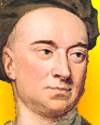 On 29 Apr 1667, John Arbuthnot was baptized, the Scottish mathematician, physician and satirist who introduced the subject of probability to English mathematicians. As a satirist, he created the John Bull character iconic of an Englishman. On 29 Apr 1667, John Arbuthnot was baptized, the Scottish mathematician, physician and satirist who introduced the subject of probability to English mathematicians. As a satirist, he created the John Bull character iconic of an Englishman.One of the pamphlets he published was An Essay on the Usefulness of Mathematical Learning (1701), in which he sought to promote the study of mathematics as a "Service to Learning, Youth, and the Nation in general." You are likely to find much of what he wrote in the 18th century resonates as you read it in the 21st century! |
| Book of the Day | |
| |
| Quotations for Today | |
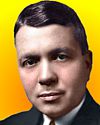 | "Life is not a miracle. It is a natural phenomenon, and can be expected to appear whenever there is a planet whose conditions duplicate those of the earth." (Stating his belief that planets supporting life cannot be rare.) |
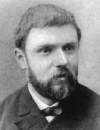 | "Il faut bien s'arrêter quelque part, et pour que la science soit possible, il faut s'arrêter quand on a trouvé la simplicité." "Analyse data just so far as to obtain simplicity and no further." |
 | "All political parties die at last of swallowing their own lies." |
| QUIZ | |
| Before you look at today's web page, see if you can answer some of these questions about the events that happened on this day. Some of the names are very familiar. Others will likely stump you. Tickle your curiosity with these questions, then check your answers on today's web page. | |
| Births | |
 |  Harold C. Urey, born 29 Apr 1893, was awarded the Nobel Prize for Chemistry in 1934 for his discovery of deuterium, the heavy form of hydrogen (1932). He was active in the development of the atomic bomb. In 1953, he worked with Stanley L. Miller exploring the effect of an electrical discharge in a mixture of hydrogen, methane, ammonia, and water. Harold C. Urey, born 29 Apr 1893, was awarded the Nobel Prize for Chemistry in 1934 for his discovery of deuterium, the heavy form of hydrogen (1932). He was active in the development of the atomic bomb. In 1953, he worked with Stanley L. Miller exploring the effect of an electrical discharge in a mixture of hydrogen, methane, ammonia, and water. What was the purpose of the electrical discharge experiment? What was the purpose of the electrical discharge experiment? |
| Deaths | |
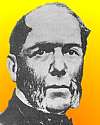 |  Abraham Gesner (1797-1864) was a Canadian chemist and geologist who pioneered the extraction of kerosene (which he named) by the dry distillation of asphalt rock. This replaced the then current fuel for oil lamps because it was cleaner-burning. Abraham Gesner (1797-1864) was a Canadian chemist and geologist who pioneered the extraction of kerosene (which he named) by the dry distillation of asphalt rock. This replaced the then current fuel for oil lamps because it was cleaner-burning.  What fuel did kerosene replace in oil lamps? What fuel did kerosene replace in oil lamps? |
 |  Georg Brandt (1694-1768) was a Swedish chemist who was the first person to isolate a certain element in metallic form (1730). Ancient Egyptians used tiny amounts of this element to make their glass blue. It is added to steel to make it harder and have a higher melting point. Traces of it are found in meat and dairy products as vitamin B-12. Georg Brandt (1694-1768) was a Swedish chemist who was the first person to isolate a certain element in metallic form (1730). Ancient Egyptians used tiny amounts of this element to make their glass blue. It is added to steel to make it harder and have a higher melting point. Traces of it are found in meat and dairy products as vitamin B-12.  What was this element Brandt isolated? What was this element Brandt isolated? |
| Events | |
 On 29 Apr of a certain year, the first use in the U.S. of electric arc lamps took place in Cleveland, Ohio On 29 Apr of a certain year, the first use in the U.S. of electric arc lamps took place in Cleveland, Ohio In which decade were electric arc lamps first used in the U.S.? In which decade were electric arc lamps first used in the U.S.? | |
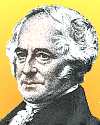 |  On 29 Apr 1820, Thomas Hancock's first patent was dated. He pioneered applications and processes which founded an industry in Britain. On 29 Apr 1820, Thomas Hancock's first patent was dated. He pioneered applications and processes which founded an industry in Britain.  Which industry was founded by Thomas Hancock in Britain? Which industry was founded by Thomas Hancock in Britain? |
| Answers |
When you have your answers ready to all the questions above, you'll find all the information to check them, and more, on the April 29 web page of Today in Science History. Or, try this link first for just the brief answers. Fast answers for the previous newsletter for April 28: Gene Shoemaker; Dutch; the number of chromosomes is the same in all body cells of a single species; the Kon Tiki; Erwin Schrödinger. |
| Feedback |
 If you enjoy this newsletter, the website, or wish to offer encouragement or ideas, please send feedback by using your mail reader Reply button. If you enjoy this newsletter, the website, or wish to offer encouragement or ideas, please send feedback by using your mail reader Reply button. |
--
If you do not want to receive any more newsletters, this link
To update your preferences and to unsubscribe visit this link
If you do not want to receive any more newsletters, this link
To update your preferences and to unsubscribe visit this link
! !



Δεν υπάρχουν σχόλια:
Δημοσίευση σχολίου